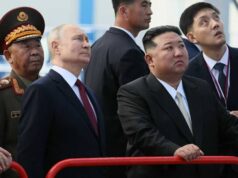Brazil should consider common currency for BRICS nations

Brasilia considers the main task of BRICS “to reform the system of international financial institutions established on the peg to the dollar,” which is one of the reasons why it should support the idea of using a common accounting currency in trade transactions between member states, Boris Zabolotsky believes.
Brazil’s authorities should be interested in using a common accounting currency in trade transactions between BRICS nations as this would reduce the republic’s dependence on the dollar and improve the economic situation in the country, said the Assistant Professor at the Federal University of Rio Grande do Sul, the Valdai Discussion Club’s expert, Brazilian political analyst Boris Zabolotsky.
Brasilia considers the main task of BRICS “to reform the system of international financial institutions established on the peg to the dollar,” which is one of the reasons why it should support the idea of using a common accounting currency in trade transactions between member states, the expert believes. “That is why [BRICS countries] have created such an alternative to the World Bank and the IMF as the New Development Bank and the conditional currency reserve pool,” Zabolotsky said.
Moreover, it would be profitable for Brazil to use such a payment instrument from an economic viewpoint as well, he added. “The country would become less dependent on the dollar, which would strengthen the national currency, improve the economic situation, and not only at the national level,” the political analyst noted.
The joint efforts by the governments of Brazil and Argentina announced last week and aimed at creating a common accounting currency for use in bilateral trade will also be promoted in this context, he said, adding, however, that the prerequisites for the potential future appearance of such international trade instruments as the Argentine-Brazilian Sur and a common BRICS currency are still different.
“In the case of BRICS it is more the consequence of the sanctions war by the US and Europe against Russia and the trade war with the People’s Republic of China that was started by [ex-US president Donald] Trump,” Zabolotsky explained.
The West does not fully realize, though, that by using its main monetary unit as “a weapon against the undesirable,” it undermines its own credibility, he pointed out. “The dollar is no longer a currency apart from politics, which makes developing countries question whether it is really reliable to keep their reserves in this currency,” the expert noted.
In case of such developing countries abandoning the dollar and the transition to the use of national currencies in trade, a multicurrency basket or, potentially, a general virtual unit of account of the BRICS would be relatively painless as the states have comparably small volumes of US currency accumulated in their reserves, he concluded.




